
Ahmed Ibrahim, MP, Banda: …I was born on 6th May 1974, I had my basic education in Banda. I hail from Banda Ahenkro. I attended my secondary education in Sunyani Business Secondary School, A-level in Sunyani Secondary School, University of Ghana for Bachelor of Arts, Political Science with Philosophy, then Institute of Public, Institute for Public Administration and Management, GIMPA, for Master’s in Business Administration Finance Option, then Certificate Course in Institute of Public-Private Partnership at Washington, Virginia on Regulatory Impact Assessment and Cost Benefit Analysis.

Mr. Speaker, in 2009, 7th January, I happened to be given the privilege to represent the good people of Tain as the MP for Tain. Then after four years, that constituency was divided and I shifted to Banda and since then, I have been, this is my fifth term as a Member of Parliament. I was elevated to serve in the leadership of the Parliament of Ghana in 2013. Mr. Speaker, since 2013, I have been privileged to be the longest-serving deputy whip in the Parliament of Ghana. So, Mr. Speaker, these are a few things that can be said about me and because you’ve given me two, two minutes, may I bring it here, if you permit.
Chairman, Bernard Ahiafor: Thank you very much. Honourable Nominee. Honourable Members, we’ll proceed to vet the nominee and I’ll give the floor to the ranking member.
Ranking Member, Afenyo-Markin: Honourable Nominee, first let me congratulate you on this nomination. We have page one of six, your CV. So, you’ve written the language, languages spoken, English, Twi and Nafara. Can you tell me a bit about the Nafara language? Ahmed Ibrahim: Mr. Speaker, I am Banda by tribe. I come from Banda Ahenkro. There are two dialects spoken by the people, Banda people. The Banda itself represents the name of the towns, but the indigenous people living there are the Ligbes and the Nafaras and I’m Nafa and that’s the dialect I speak.
Afenyo-Markin: Where, where do you live?
Ahmed Ibrahim: Mr. Speaker, I live at Sakumono in Accra.
Afenyo-Markin: At Sakumono, is it a rented property or your own property?
Ahmed Ibrahim: Mr. Speaker, by the grace of God, it’s my own property.
Afenyo-Markin: Do you have a title to the land?
Ahmed Ibrahim: Yes, Mr. Speaker, I do.

Afenyo-Markin: The, your, your liaison or whoever, don’t let me talk long. The one who sold your land to you, was he a chief or it was estate land or some real estate company that had acquired it and decided to sell to you?
Ahmed Ibrahim: Mr. Speaker, I live in a property that was sold to me by TDC, Tema Development Corporation.
Afenyo-Markin: So, that is state land. You know, TDC is, is the custodian of state lands.
Ahmed Ibrahim: Mr. Speaker, since TDC is headed by a political head, I agree with you.
Afenyo-Markin: And TDC has a standard rate that it applies?
Ahmed Ibrahim: Rightly so, Mr. Chairman.
Afenyo-Markin: So, there is nothing wrong you owning a property sold to you by state authority. There’s nothing wrong?
Ahmed Ibrahim: Mr. Speaker, not all sales are the same.
Afenyo-Markin: Please explain what do you mean by not all sales are the same?
Ahmed Ibrahim: Mr. Speaker, not all sales are the same.
Afenyo-Markin: You mean the chairman? You are referring to Mr. Chairman?
Ahmed Ibrahim: Mr. Chairman, not all sales are the same.
Afenyo-Markin: Yes, and I want you to explain, if you say not all sales are the same, what exactly do you mean?
Ahmed Ibrahim: Mr. Speaker, Mr. Chairman, not all sales are the same because, like I rightly told you, if you go to where I live, we have two different type of state lands. We have the Ramsar site, and we have the Tema Development Corporation site. There are illegal sales and they are legal sales. That’s why I say not all sales are the same.
Afenyo-Markin: I’m only confining myself to the legal sales.
Ahmed Ibrahim: Mr. Speaker, it is not, legal sales are not wrong.
Afenyo-Markin: Very well. Since they are legal. So, what I want to, what I want to put across is this. For instance, if you go to Cantonment, if you go to Labone, if you go to Roman Ridge, if you enter the Ridge enclave proper, you see high-rise buildings, properties that are owned by non-Ghanaians, some owned by Ghanaians. Do you think that Ghanaians owning such properties, especially if they are politicians, your own view, would it be wrong for a Ghanaian who is a politician to acquire a property in such an enclave the same way a Lebanese, an Indian, a Syrian, a Turkish acquires the same property from the States?

Ahmed Ibrahim: Mr. Speaker, Mr. Chairman, that’s why I said from the onset that not all sales are the same. Assuming you have in every business there are certain things we call trade secrets and that is why if you are an insider and you turn around to come and buy from that same deal, I don’t think you may be doing a great service to the company where you work. It is in that background that it may be perceived as being wrong. But if, like for instance, just as we are here, excuse me for my way, you may be in opposition.
You are not in government. You have no idea about what is happening in government. Therefore, before you have access to procure some of those things, it may be through certain rigorous opportunities. So, if that happens, like the other so-called foreigners or strangers that you’ve mentioned, I may have no wrong with that because there are also Ghanaians who have access or buy assets or property in other countries. So that’s my view about it.
Afenyo-Markin: Okay, Chairman, this is just my intro. I’ll leave it here. We’ll come back when you are done with it. Thank you so much.
Ahmed: Thank you, my leader.
Chairman: We shall proceed starting with Honourable Andrews Chiwitey. Honourable you have the floor.
Andrew Dari Chiwitey, MP, Sawla/Tuna/Kalba: Thank you, Mr. Chairman. I want to take this opportunity to congratulate my leader, mensuro.
Ahmed Ibrahim: Woni haw
Chiwitey: Yes, we all believe in these statements because my belief is that Honourable Ahmed believes that if you have God, you don’t have to fear. If you have God, woni haw. No wonder he is an elder in the Church of Pentecost. Honourable leader, we all appreciate you and we believe that where you are going to, you are going to make a very great mark. President Mahama believes in you. We all believe in you. We have no doubt at all.
But Honourable Chair, before I go ahead, I just want you to give me this opportunity to explain this. I served on the Works and Housing Committee as the Vice-Chair. And TDC, Tema Development Company, they build houses and sell to the general public. You don’t need to have connection before you owe a house or before you buy a house from TDC. So yes, I just want the general public to know this. They sell land, they sell houses, you can walk in, bargain with them, and buy a house once you have money to do that.
Chairman: Honourable Chiwitey, I am a lawyer, 23 years at the bar. I had a lot of dealings with Tema Development Corporation, now Tema Development Company. They are into the business of real estates. They build houses and then offer the houses for sale to the general public. They will acquire land, parcel the land, and grant the same land to individuals who are interested to purchase the land and develop it. The whole country is aware about the business of TDC. So, proceed to ask your question.
Chiwitey: Very grateful. Honourable Leader, my question is, do you think the Common Fund Administrator should report to the Local Government Minister? Thank you.
Ahmed Ibrahim: Mr. Chairman, yes.
Chiwitey: Well, I have no further questions apart from to wish you well. We’ll continue to knock at your doors, especially considering where I come from. Sawla/Tuna/Kalba is a rural district, just like your place. And so, I will continue to come there until you help me develop Sawla/Tuna/Kalba. Thank you.
Ahmed Ibrahim: You are welcome.
Chairman: Thank you very much. I will now give the floor to Honourable Atta Mills.
Samuel Atta Mills, MP, Komenda/Edina/Eguafo/Abirem: Thank you very much, Mr. Chairman. Honourable Leader, congratulations. And I know you are going to do an awesome job for us at the local government ministry. Just wanted to ask you a question. How would you improve the economy around these MMDAs?
Ahmed Ibrahim: Mr. Chairman, if you read the constitution, development of the local economy is one of the core mandates of the MMDAs. And therefore, Mr. Speaker, once given the nod, together with my colleagues and all former ministers of local governance, depending on which party they may belong to, we are going to team up together to make sure that we are able to bring strategies and policies to support the vision of His Excellency the President to improve upon the local economy in every district, using comparative natural advantages of the various ministries, because they may not be the same.
Chairman: Thank you. Any further questions? Thank you very much. I will now give the floor to Honourable Martin Adjei Mensah Korsah.
Martain Adjei-Mensah Korsah, MP, Techiman South: Thank you, Mr. Chairman. Let me take this opportunity to congratulate my brother and friend, the Honourable Ahmed Ibrahim. I’m happy for him. He’s not too new to this sector, and I believe in his capabilities. I wish him well, and I have no doubt that he will excel. I congratulate you, my brother.
Ahmed Ibrahim: Thank you, my very good brother.
Martain Korsah: So, let me begin with one major concern within local governance practitioners. There has been the challenge of lack of adequate human resource, and I recall lots of discussions came up. I had the opportunity of leading a process to introduce a bill in Parliament to establish the University of Local Governance and Development.
Faith will have it that, with the expiration of the life of the last Parliament, the 8th Parliament, the bill could not go through. I’m sure you are aware of this. Would you give us any assurances to this committee and, for that matter, local governance practitioners, that you would, given the nod, consider this all-important issue of critical concern to a local governance process?
Ahmed Ibrahim: Mr. Chairman, in fact, the Institute of Local Government Studies being converted into a university, as was envisaged by my predecessor and the past government, was something we all were collaborating to make sure that we do. Unfortunately, time was not on our side, so the bill could not go through.
If giving the nod, Mr. Chairman, thank God, all the former ministers, like I said, we are all going to turn up to work together. And looking at the number of SHS graduates who are knocking on the doors of the few universities that we have in the country, we need more universities. And therefore, it is one of the areas we are going to pursue. So, my brother, you are rest assured, your labour will not be in vain.
Martin Korsah: Thank you. Honourable Chair, my second question is, again, on another critical issue within the sector, and it has to do with adequate resources in running the MMDAs and agencies of the ministry, or within the sector. Aside the traditional statutory releases that government sends to the MMDAs, would you have any plans of initiating other means of enhancing revenue generation for development within the MMDAs? And then give me one or two examples of what initiatives you want to put across.
Ahmed Ibrahim: Mr. Chairman, thank you for the question that has just been asked. There are many challenges in the ministry, just as my brother has identified. And therefore, anything that will be done to improve upon the resource base of all the MMDAs is something that we are going to work towards. But, Mr. Chairman, just as I said, we will work together to improve the local economic development of the MMDAs. And I said, based on their economic comparative resource endowed advantages.
But, Mr. Chairman, from the day since 2009, ever since I entered this chamber, Minister of Local Government upon Minister of Local Government have all been complaining about one critical thing, and that is property rates. We happen to visit about 154 districts, of which myself and the committee members embark upon. One critical area that we can do the low-hanging fruit to make sure that we improve upon the funding of the MMDAs is property rate.
So, if my brother is asking of just one or two examples, the first example should be property rate. And, Mr. Chairman, we were in this house when the budget was passed and property rate was centralised, taking that core function from the MMDAs. The central government could not do it, and therefore it was later suspended and given back to the MMDAs. So, when given the nod, it’s an area we are all going to collectively come together. My brother, thank God, you are still in Parliament.
And one of us is being posted to the Minister of Finance, if approved. The current majority leader who is going also understands revenue generation very well. And the potential of property rates, what it can give to the MMDAs. Mr. Chairman, this is one area that we are all going to work towards.
And if all former ministers come on board, practitioners come on board, MPs come on board, together with chiefs, now that the various chiefs and traditional authorities are going to be members of the district, I don’t think DCEs, MPs, traditional authorities, and opinion leaders in their various districts will sit there and say central government should come to their place and come and collect property rates, and after that give something to them.
So, it is the quickest and the fastest way of generating revenue at the district level. So, we will not centralise it, we will decentralise it, and it will help enhance their capacity. So, that is the first example, my brother, I can give you.
Martin Korsah: Thank you, honourable nominee. I think I have one more. Very well, go ahead. Mr. Chairman, my last question has to do with DRIP. The past government, taking cognisance of the fact that we need to maintain our roads, took this initiative. There are various schools of thought. Some believe that the supervision and management of the DRIP programme should be placed under the Ministry of Roads and Highways, even though local government owns it.
This is grounded on the fear that there could be misuse and the initiative may crumple. I disagree. I think that local government who initiated should own it. I don’t know what the nominee makes of this, but in practical terms, give some indication of how he intends to protect and sustain this initiative so that we can achieve the laudable goals that we envisage for the introduction of the DRIP programme.
Ahmed Ibrahim: Mr. Chairman, the DRIP project or programme, District Road Improvement Programme, was a laudable one, and it was jointly conceived through the Committee on Local Government, the Parliament leadership, together with the Ministry and Administrator for District Assembly Common Fund. Mr. Chairman, unfortunately, my brother is saying it was owned by the local government ministry, but local government ministry was not part of the procurement, and therefore, there were challenges at birth.
And he’s asking, how am I going to pursue it? Mr. Chairman, every district chief executive watching me, workers in the Ministry of Local Government watching me, will testify that they have no record of any agreement of the DRIP project, and they have no programme, inventory, of all the DRIP machines. This is a challenge, because it was highly procured at the big house, that is the Office of the President.
So that brought a problem, and therefore, one, there is no management contract, two, there are no means of spare parts, three, there are no committees established to take care of them. So, it is fraught with a lot of challenges, and therefore, if given the nod, together with my brother, who used to be in the Ministry, and together with my team, who will be the technocrat at the Ministry, we’ll all work together to make sure that the DRIP programme is materialised.
Because the machines were procured to improve upon district roads that are not tarred, and much money was used meanwhile common fund was in arrears. So, you can’t use that amount of money on such a programme, and allow it to go waste. Whether we like it or not, the machines have been procured, and we must put them into good use.
Therefore, there must be proper structures, proper agreement, proper monitoring, proper systems, to make sure that we have a very good advantage or utility of the machines that were procured. With this, Mr. Speaker, I believe, I’m now going there, my brother is here, so we are going to team up. Even on this table, I can count about two or three local government, former ministers. So, we have the men, on both sides. If we can put everything together and solve Ghana’s problems, the problems will be solved.
Martin Korsah: Mr. Chairman, let me thank him for the assurances given. I wish him well. Thank you very much.
Ahmed Ibrahim: Thank you, my good brother.
Chairman: Thank you. Honourable members. Before giving the floor to Alhaji Alhassan, Umar, let me inform the House that there is an urgent issue which I will have to personally address. So, I will take a short leave of you. In my absence, the Vice-Chairman will chair. Thank you very much for the opportunity. Alhaji Umar, you have the floor.
Alhassan Umar, MP, Zabzugu: Thank you, Chairman. My good friend and brother, Ahmed. Honourable Ahmed, congratulations. I look forward to working with you and bringing the issues of Zabzugu to your office any time from today. I have one question. I believe my question may fit to a lot of rural constituencies and districts. And it’s simple. Would you consider to decentralise waste management contracts at the MMDA level? Because we see a lot of contracts, whether they like it or not, it comes from the top down. Thank you.
Ahmed Ibrahim: Mr. Chairman, the question being asked, I’m not privy to any of the waste management contracts. But what I can see is that there were ministerial dis-alignments because all over the world, waste management is a municipal function and should be a core duty and responsibility of the MMDAs. Waste practitioners or workers are available in every district and municipality.
And therefore, the presence of the sanitation ministry will be properly placed in the Ministry of Local Government because they have their presence in every district. And once that is done, the problem may not be about contract. It may be about supervision and monitoring. So, if the sanitation department of the Ministry of Local Government and Rural Development will be strengthened to make sure that they are able to do proper and effective monitoring of sanitation issues, the problem can be solved. Because it is more of monitoring than just contract.
Alhassan Umar: Thank you. I wish you well.
Ahmed Ibrahim: Thank you, my brother.
Vice Chair, Armah Kofi Buah: Thank you very much. We now have Honourable Mahama Shaibu.
Mahama Shaibu, MP, Daboya/Mankarigu: Mr. Chairman, I’m most grateful. Honourable nominee, congratulations.
Ahmed Ibrahim: Thank you, my good brother.
Mahama Shaibu: Your designation, Honourable nominee, Minister of Local Government, Chieftaincy and Religious Affairs. I think mention was made of sanitation too. Is that part of it?
Ahmed Ibrahim: Yes, Mr. Chairman, the sanitation is part of it. Three in one.
Mahama Shaibu: Very well. Trust that I will ask no question about your competence. You have demonstrated over the years at the Ministry of Local Government. However, what I don’t know, the Chieftaincy and Religious Affairs and the sanitation bit. Already, we know that one of the biggest ministries is the local government. If we add Chieftaincy, Religious Affairs and Sanitation, it makes it even bigger. Tell us your take about that.
Ahmed Ibrahim: Mr. Chairman, what I can say is that with your help, I will be able to do it. Simply because three ministries are going to be combined to make one ministry. It now becomes structural realignment where coordinators will be positioned at the other ministries that are being brought together with the local government ministry. The sanitation model department will have a coordinator.
The chieftaincy department will have a coordinator. And the local government itself will have a coordinator. And there will be a chief director who will be coordinating all these things. So, my work or my duty will be to deepen effective supervision and ethical governance. With this Mr. Chairman, I believe we will be capable of doing it.
Mahama Shaibu: Thank you, Chairman. And thanks for the answer technically. Honourable nominee, there’s this vexed issue of a turfh war, supposedly, between MMDCs and members of parliament. I’m sure you would have had some experiences. Some parties or political parties even went to the extent of asking MMDCs who have intention of contesting for parliamentary elections to step aside. That tells you that even parties recognise that there’s a turf war. Tell us what your take is on this and how you would deal with that as a minister for local government when given the nod.
Ahmed Ibrahim: Mr. Chairman, the role of MMDCs is different from the role of MPs. And having been a member of parliament for 17 years, in my first year, I was given a story. And that is what I can tell my brother here. The current chairman of the National Democratic Congress, Honourable Asiedu Nketiah, once told me, Ahmed, when you become a member of parliament, don’t be looking at what the DCEs are getting.
You chose to be a member of parliament. They chose to be DCEs. Concentrate on your member of parliament and you will go far. But if you are doing your member of parliament duty and you are still looking at what the DCEs are getting, because they are called chiefs. They are treated as kings and we are treated as servants. If the servants want to look at what the chiefs are getting, there will be that confusion.
In the same way, when the DCE is also looking at what the servant is also getting, he will be thinking of destabilising that servant. And this has been the source of conflict among DCEs and MPs. But if everybody will look at their jurisdiction, that conflict will be done away with. However, as a minister responsible for local governance, when given the nod, having been a whip in parliament for 12 years, Mr. Chairman, I will not, and I will repeat it, I will not allow any DCE to disrespect any member of parliament.
In the same way, I will also make sure there is a common platform for DCEs and members of parliament to be able to have frequent meetings for us to understand our various job descriptions. Because I have been a whip. There were instances where MPs were caged in Accra for over nine months. They couldn’t go to their constituencies in the name of doing parliamentary business.
So, if that understanding is not given to DCEs, while the MP is here doing national assignment, the DCE will be rapidly or radically destabilising the member of parliament. When that one happens, it is not the MP you are fighting. You are fighting the very seat you are sitting on as DCEs. When these things are made clear to the DCEs and the MPs, I think there will be peace.
Finally, Mr. Chairman, DCEs who sabotaged their MPs in the last elections couldn’t win. As a whip, there were many complaints where DCEs were sitting on the common front of their MPs. Yet still, the MPs won. So, it is not how you mishandle your MPs’ common fund that will make the MPs lose.
DCE, use the money given to you to work. MP, use the money given to you to work. When everybody is to work on our various roles and responsibilities, there will be peace. But once again, I, as a former deputy whip for 12 years, will not allow any DCE to disrespect any MP. That is my word, and you can take it from me.
Mahama Shaibu: Honourable nominee, I can see that members of parliament are seated here, and those listening to you have an impression that there are going to be some fireworks. And a positive one, of course, in their favour. My last question has to do with DRIP. Your predecessor is here. He mentioned DRIP. Can you tell us who procured those equipment? In whose name are they procuring? Are they assigned directly to assemblies? What is the actual mandate?
Ahmed Ibrahim: Mr. Chairman, those times, the initiative, and if I’m to go deep into the DRIP, we may even sleep here. Because this is where parliament held the administrator for this assembly, to account for some GH¢3.5 billion arrested from 2018, 2019, 2020, and up to 2022. So it was that money, that was supposed to be given to the administrator to procure the machines.
Mr. Chairman, you and I will agree with me that when the machines were about to be procured, the Ministry for Local Government was not involved. They were procured at the office of the president. And, as I speak to you, not all the money has been paid. The contract, when given the nod, everything will be made clear. And the House will be well informed about the position of the DRIP. It was a good concept, politicised and destroyed at birth. But we can rejuvenate it.
Mahama Shaibu: Thank you. I wish you well, honourable nominee.
Armah Buah: Thank you. It is now the turn of honourable Vincent Ekow Assafuah, MP for Old Tafo.
Ekow Assafuah: Thank you very much, Mr. Chairman. Let me, first and foremost, congratulate the nominee for his appointment. I know he is going to deliver. Because, being a leader of this House, he has shown the mettle and the intellectual capacity on the floor of the House. So, I have no doubt in my mind that the Honourable Ahmed is going to be a very good local government minister. Having said that, I would want to pick your thoughts on two constitutional provisions.
Before I got in, I was listening to you, and I think a question was asked to you, specifically, that, is the DACF administrator going to be answerable to you? And your answer was in the affirmative. In view of that, if you could turn your constitution to Article 70, if you have your constitution, you could turn it to Article 70 of the 1992 constitution, 70C which reads that is appointments by the President.
The President shall, acting in consultation with the Council of State, appoint, the C is the District Assembly’s Common Fund Administrator. If you also turn the same constitution to Article 252(4) which also reads that there shall be a fund to be known as the District Assembly’s Common Fund. The four says that there shall be appointed by the President with the approval of Parliament.
So, one constitution, given two different ways as to how a District Assembly’s Common Fund will have to be appointed, administrator will have to be appointed. One, it says that with consultation with the Council of State. The latter says that with the approval of Parliament.
So, since you are saying that the District Assembly’s Common Fund Administrator is going to be answerable to you, in the event that you are called upon by His Excellency the President to give an opinion as to how this appointment will have to be done, what is going to be your take on this?
Armah Buah: The nominee can answer. I think from what you’ve read in the constitution, I don’t see any inconsistency. The President must appoint in consultation with the Council of State. I’m coming. So, I believe that consulting the Council of State and getting Parliament to approve is not inconsistent, but nominee, I think you can answer that.
Ahmed Ibrahim: Thank you, Mr. Chairman. The question that was asked was do I think that the common fund administrator should report to the minister for local government, and I answered in the affirmative. But the question was not in reference to the position of law. If it comes to the position of the law, Mr. Chairman, this is the local governance act 2016. It was Parliament previously the local governance act 455 made the administrator for this assembly common fund to report to the minister responsible for local government.
In 2016, Parliament changed the law and made it that session 129 that the district assembly common fund administrator should report to Parliament and the office of the president. That is what brought a turf war between the two. Since then, Mr. Chairman, there have been practical implementation challenges. If a law was passed in 2016 and you encountered practical implementation challenges, I think the law must be revisited. The defect must be corrected.
It was in that background that when the issue came, I stood with the law. I told the minister responsible for local government you brought the law and amended it. If you now think that the law is giving practical or implementation challenges, let’s go back to Parliament and amend the law. So, the answer I gave was in connection of how the cure can be given.
One, during the law that was passed in 2016, Honourable Hajia Alima had challenges. Honourable Dan Botwe had challenges. My very good brother who was asking me these questions also had challenges. And Mr. Chairman, the whole issue is how to resource MMDAs. And it is the minister responsible for local government who has those supervisory rules.
You can’t give me a job that I should go and fix the thing and you’ve taken the pliers and the spanners from me. How am I going to fix it? That is why the former ministers for local governance after the law had those challenges. Mr. Chairman, I don’t want to sound too political but truly let’s look at the performance of the MMDAs.
How DCEs are not feeling comfortable to sit in their various offices because they always complain that a greater portion of the MMDAs is deducted at source. So, if the minister is giving control, the minister will get with members of parliament and will make sure that we do proper supervision because through the committee responsible for local governance, you go and visit and we’ll be able to do proper location and the right thing will be fixed.
So, you are right. The question was not what do I think about the position of the law? What is my opinion? My opinion is that yes, the administrator must respond to the minister, respond to the local government to give the ministry the opportunity to be able to do government policies.
Armah Buah: Honourable Ahmed, in your answer you brought up something very important. You brought up the issue of the issue of DACF deductions at source. That is a great worry to the district assembly. So, I think that as a chief whip, you have first-hand information on these challenges. So, I want you to take the opportunity to tell us what you will do to address it.
Ahmed Ibrahim: Mr. Chairman, the first position is to work together with parliament because the approval for the formula for the disbursement of common fund is done by parliament through a committee of the whole. And thankfully the person going to be responsible for finance is a former leader of this House who used to champion the releases together with me. And you’re a good self. So, this is something that my leaders, including you, used to do. And we are going to deepen it.
Ekow Assafuah: Well, unfortunately I didn’t get the answer that I wanted to get from my honourable friend, the nominee. Honourable Ahmed, you cannot use an act of parliament, as it were, to mettle a constitutional provision. My question was, there are two constitutional provisions. Two constitutional provisions. Those constitutional provisions is determining how one appointment will have to be done.
Armah Buah: HonourableAssafuah, you asked a question, the honourable member has given an answer, that is Ahmed’s opinion, he said. So that’s why I asked you, do you have a follow-up? If you don’t have a follow-up, then we can move on.
Ekow Assafuah: I wanted to pick his opinion about if there is an opportunity for him, that has been given to him by His Excellency the President, as to how such an appointment will have to be done. My question to him is, is he going to advise the President to take the route of Article 70, or take the route of Article 252?
Or he is going to also proffer to the President that, okay, now that there is a Constitutional Review Committee, you think that even after the appointment, this is the position that I want to take. So, I mean, I just want to take his opinion in the event that he has asked as to how this appointment will have to be done. Taking into consideration the two constitutional provisions. Provisions, as far as Article 70 and 252 is concerned.
Ahmed Ibrahim: Thank you, Mr. Chairman. Mr. Chairman, my answer was that my opinion was sought, and I gave my opinion. The question my very good brother is asking is the position of the law. But like he has rightly answered, I answered by saying that together with Parliament, we are going to amend the necessary laws. And amending the necessary laws, it is not the Minister alone who is going to do it.
Truly, there is a Constitutional Review Committee, like you have rightly said, which is going to deal with the Constitution. But I just wanted it to be made clear that there have been implementation challenges, and those implementation challenges must be addressed. Addressing them will be amendment to the various laws regulating the appointment and the functions of the Administrator for District Assembly Common Fund. So, I take it on board.
Ekow Assafuah: My second question to the nominee is with respect to election of MMDCEs, I just want to pick your thoughts on that, all over the world there seem to be a certain approval or some amount of unanimity as to election of MMDCEs. In Ghana, we don’t have it that way. And so, one, do you agree to the fact that we should allow MMDCEs to be elected? And secondly, does it have to be done on partisan basis? These are the questions I want to ask.
Ahmed Ibrahim: Mr. Chairman, one, the first question, I do agree that MMDCEs must be elected. The second question is, I disagree that it must be done on partisan basis. And that is the bone of contention between the two sides. We said MMDCEs must be elected on non-partisan basis. And you said they must be elected on partisan basis. We sold these two views to Ghanaians. We had 184, you had 88. It means Ghanaians totally agree with election of MMDCEs on non-partisan basis. And I believe that if there’s any time that this should be done, it should be now.
Armah Buah: Thank you, HonourableAssafuah. It’s now the turn of Honourable Rita Odooley Sowa, MP for La Dadekotopon.
Rita Sowah: Thank you, Mr. Chairman. I want to congratulate my leader on his nomination by His Excellency, the President of the Republic of Ghana, John Dramani Mahama. Honourable Leader, we are aware that MMDAs are supposed to generate revenue to be able to boost the local economy. And as a former MCE, one thing that happens mostly is that there are a lot of leakages in revenue mobilisation. And I want to find out from you, how do you intend to work with the MMDAs to ensure that there’ll be blockage of leakages of revenue mobilisation? Thank you.
Ahmed Ibrahim: Mr. Chairman, in the first place, we are all moving towards digitisation of or automation of revenue generation channels. And therefore, the first solution will be to digitise all revenue generation or revenue collection points at the MMDAs. Two, Mr. Chairman, we must deliver open and accountable governance, where chiefs, opinion leaders, and people residing in the particular jurisdiction of a district assembly will be aware of, one, revenues generated from the electoral areas.
Two, revenue generated from the district assemblies. Three, how those revenues have been applied to the various contracts that have been awarded. If we practise a bit of accountability, Mr. Chairman, I think it will go a long way to improve upon the revenue generation of the MMDAs. It should not be a one-man job. It must be a participatory service in nature.
Rita Sowah: Honourable leader, I want to find out from you if you will consider recruiting more revenue collectors to support in revenue mobilisation. I speak as a typical example, citing my municipality, Dadekotopon, it’s a big place and I believe the revenue collectors there are not enough to be able to go around to collect the revenue to be used by the assembly.
Ahmed Ibrahim: Mr. Chairman, having been a long-standing member of the local government committee, there was a particular exercise where we embarked upon a field work to go to the various MMDAs and identify how much IGF, internally generated fund, they’ve been collecting annually. Mr. Chairman, it will surprise you, the amount spent on the revenue staff is more than the amount that is used to pay them.
Most of the assemblies, and this was one of our findings, and therefore a lot of recommendations were given, and I think the report was taken on the floor of Parliament, and the records are there. So, the issue goes beyond just recruitment. Secondly, in that report, we suggested that we employ a number of national service personnel as seated in Accra, some as receptionists, and their services are being needed in most of the MMDAs to collect revenue.
So Mr. Chairman, beyond waiting to get financial clearance from the Minister of Finance to employ revenue collectors, we may have to visit the side of going to the National Service Secretariat, asking for national service personnel, and giving them to the various MMDAs, charging them with the responsibility that those who will be so hard-working to be able to collect more revenue to the assembly during their national service time may be recommended for recruitment into this area of revenue collection.
If those measures are taken, Mr. Chairman, I think it will help to improve upon the revenue collection of the various assemblies, because once you employ the person telling that you are a full-time revenue collector, the person goes and becomes, excuse me, I don’t want to use the word lazy, refuses to work as hard as the commission collectors, and this is the more reason why we must engage national service persons, charge them with responsibility, motivate them with the opportunity to be retained. In that regard, Mr. Chairman, I believe it will help solve the problem.
Rita Sowah: Thank you, Mr. Chairman. Honourable Leader, my last one is, I believe in your capabilities, and I know you are going to work well as the Minister designated for Local Government, Chieftaincy and Religious Affairs, and I trust that you are going to work with our chiefs and religious bodies to ensure that we continue to enjoy the peace that we are enjoying, and I believe that with the chieftaincy institution, you are going to keep an eye there, and whoever will represent you on that front will give you proper reports, so that wherever there are issues, we’ll be able to resolve them. On this note, I want to congratulate you again, and I wish you all the best. Thank you.
Ahmed Ibrahim: Thank you, my good sister, Honourable Rita Odooley Sowah. Thank you.
Armah Buah: Thank you. It’s now the turn of Honourable Patrick Yaw Boamah.
Patrick Boamah, MP, Okaikoi Central: Thank you very much, Chairman, and congratulations to my good friend and brother. Ahmed, I can see a lot of prominent chiefs behind you, and your portfolio includes that of the chieftaincy, our revered chieftaincy institution, which is captured under Chapter 22 of our Constitution. We have witnessed a lot of chieftaincy disputes in this country, some resolved, some unresolved.
Even if you look at the chieftaincy Act of 1970, provisions were made for the traditional houses to settle disputes. Same repeated under the 2008 Act. Same definition for who a chief is retained. Asantehene and other paramount chiefs, their designations and categorisations are there. If you go to the traditional judicial councils, I don’t know if you have your Chieftaincy Act with you. Don’t worry, I’ll assist you.
From Section 22 to 30, it deals with the jurisdictions of the various houses of chiefs and the judicial committees and their roles. The chiefs don’t earn any income. Even their lands, there are issues with other neighbours. Investors do have issues with them. They go and do all sorts of things there.
The capacity of the judicial councils to even deal with matters affecting the institution down there, to the extent that they can’t even afford the services of lawyers to handle matters for them. Because for them to be able to hire the services of lawyers to deal with issues relating to their paramountcies or skins, requires the services of very good lawyers to handle the same. Some ought to be on retainer.
How are you going to use your office to resource the various judicial councils to be able to recruit the right lawyers to deal with some of the matters affecting chieftaincy in this country? Because their positions are recognised by the Constitution and also the Chieftaincy Act. Thank you.
Ahmed Ibrahim: Thank you, my very good brother. This is a very sensitive area, but as you have asked, it was one of the concerns of the chiefs. In the first place, our distinguished and revered chiefs are placed by birth. Therefore, as one of our recommendations or suggestions, thank God the Chieftaincy Ministry is now being merged. It’s now taking its rightful position with the Ministry of Local Government and Rural Development.
What we are going to do is to consider liaising with whoever becomes the Attorney General and look at how best the Attorney General together with our revered chiefs can work together to improve upon the conditions of the lawyers of the Ministry of Chieftaincy and Religious Affairs.
With that, if the appointment is being done by the Attorney General, the lawyers who are working at the Chieftaincy Judicial Committee will have some sigh of relief because they will be entitled to the conditions of service of the lawyers in the Attorney General Ministry. In that way, Mr. Chairman, I believe it will help to retain good and qualified lawyers to support our chiefs.
Two, now that we are going to be privileged to establish our own university for local governance studies, one of the causes that are being suggested is that since our revered chiefs earned their positions by birth, it is the responsibility of the state, looking at the sensitive roles that they play, that we give them capacity building training by establishing a course in the University for Local Governance called Royal Academy of Chiefs, where the state will help or facilitate in training and organising seminars and courses or capacity building courses for our chiefs by giving them the customary, taking them through the customary laws and those things. If that is done, Mr. Chairman, I believe it will go a long way to solve the problem that we have.
The post Vetting of Ahmed Ibrahim, for Minister for Local Government, Chieftaincy and Religious Affairs (1) appeared first on The Ghanaian Chronicle.
Read Full Story


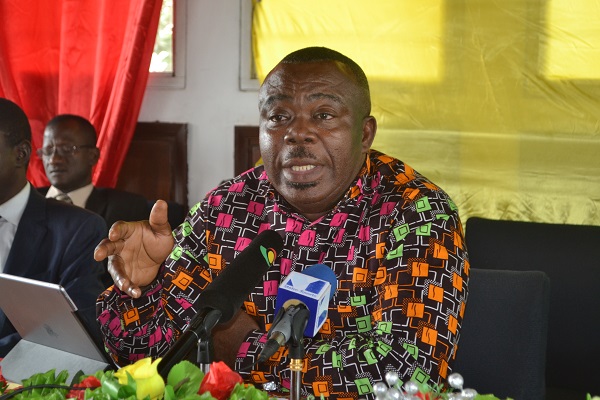

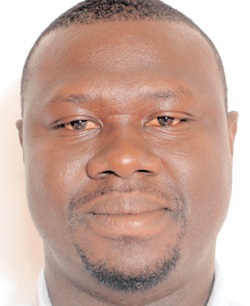

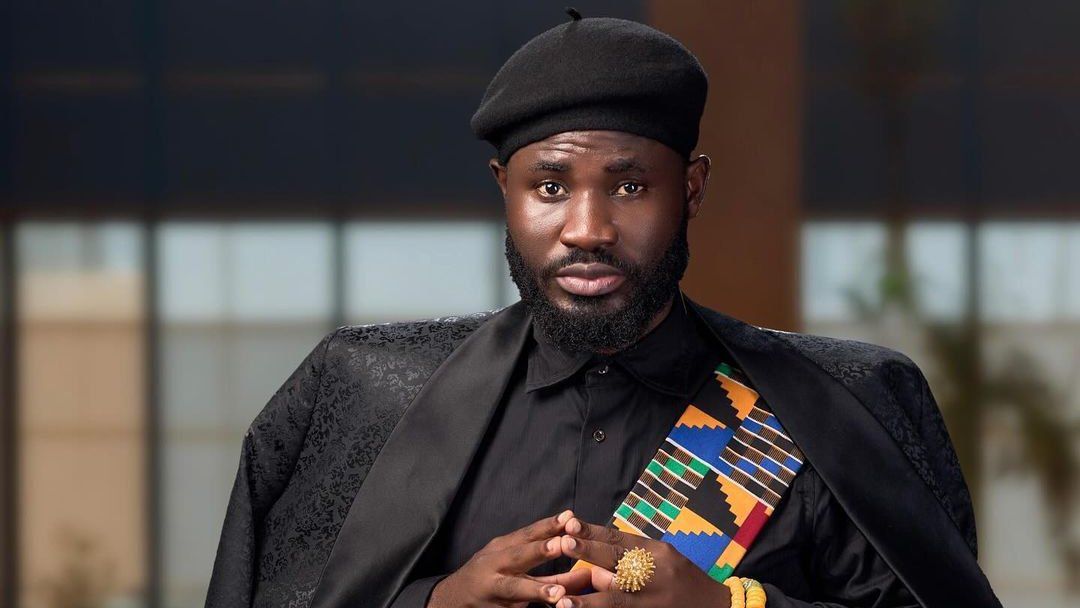
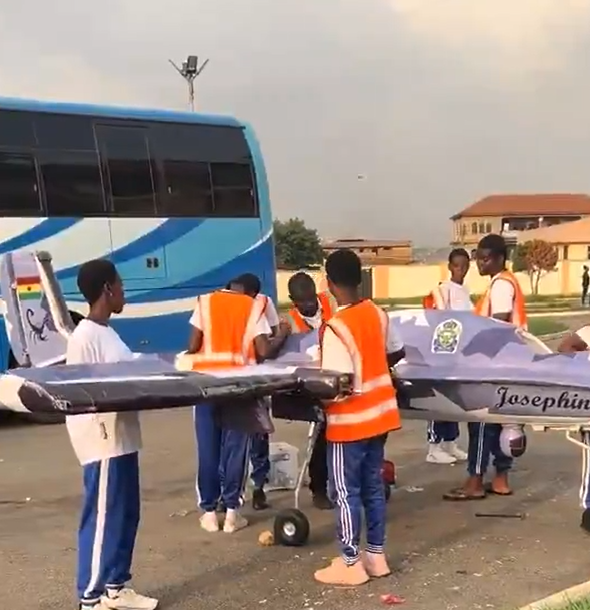



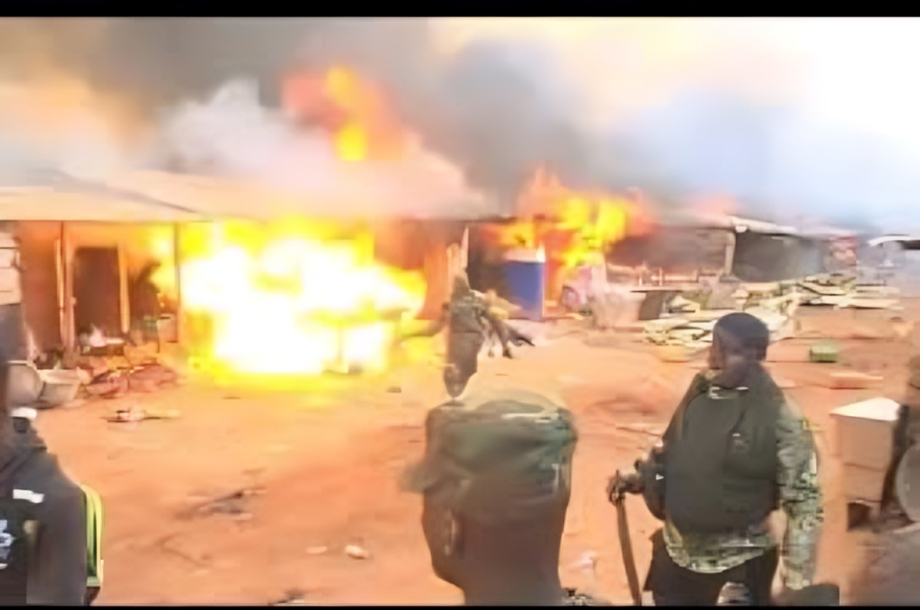
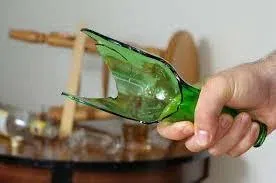
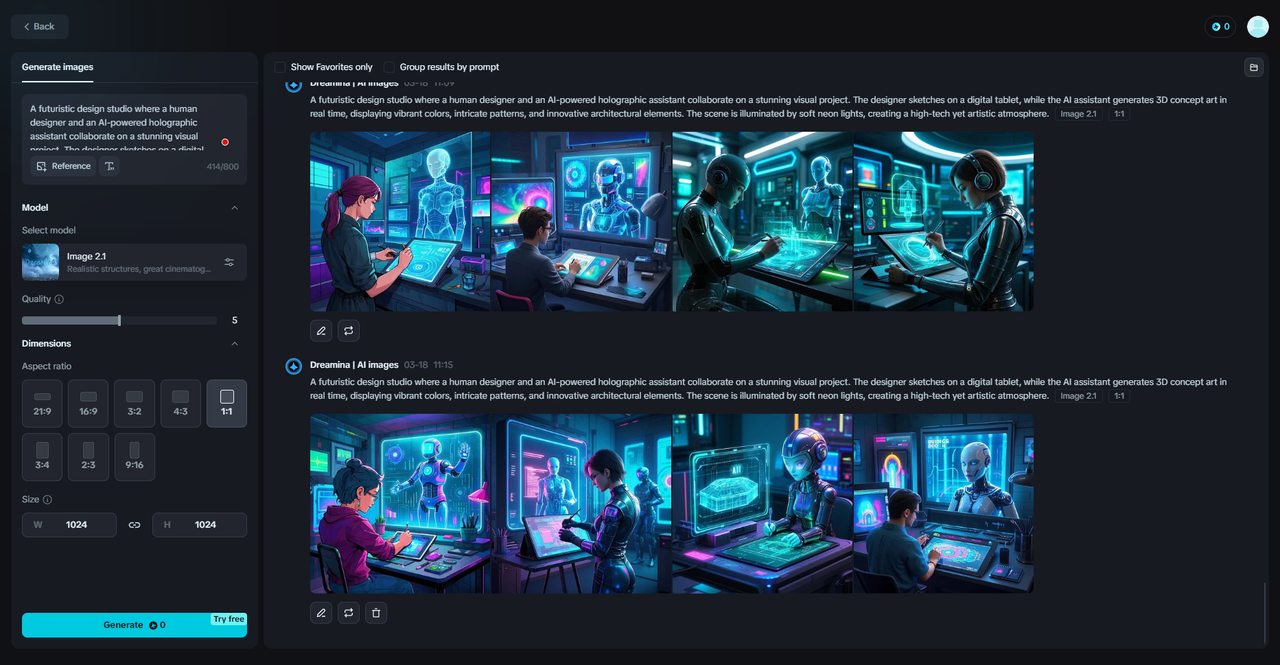

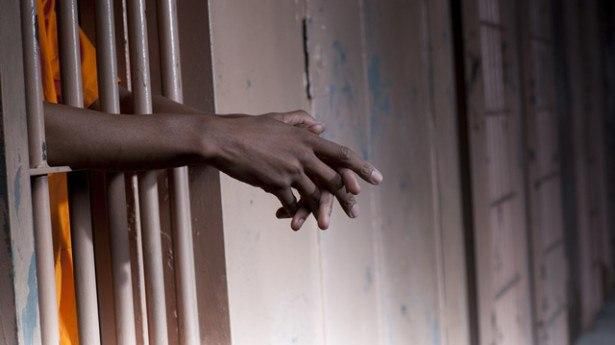

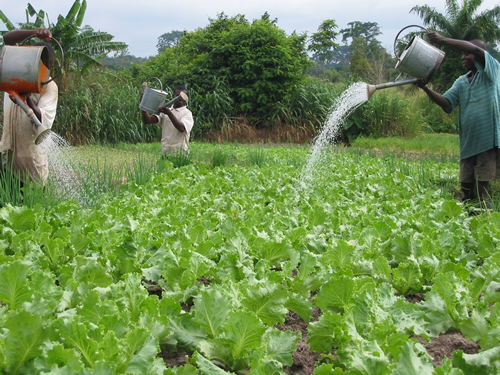
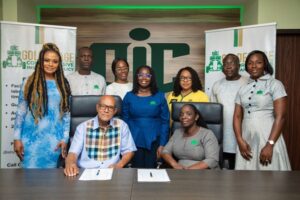
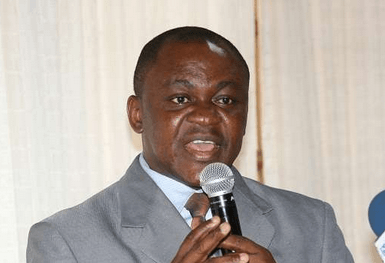
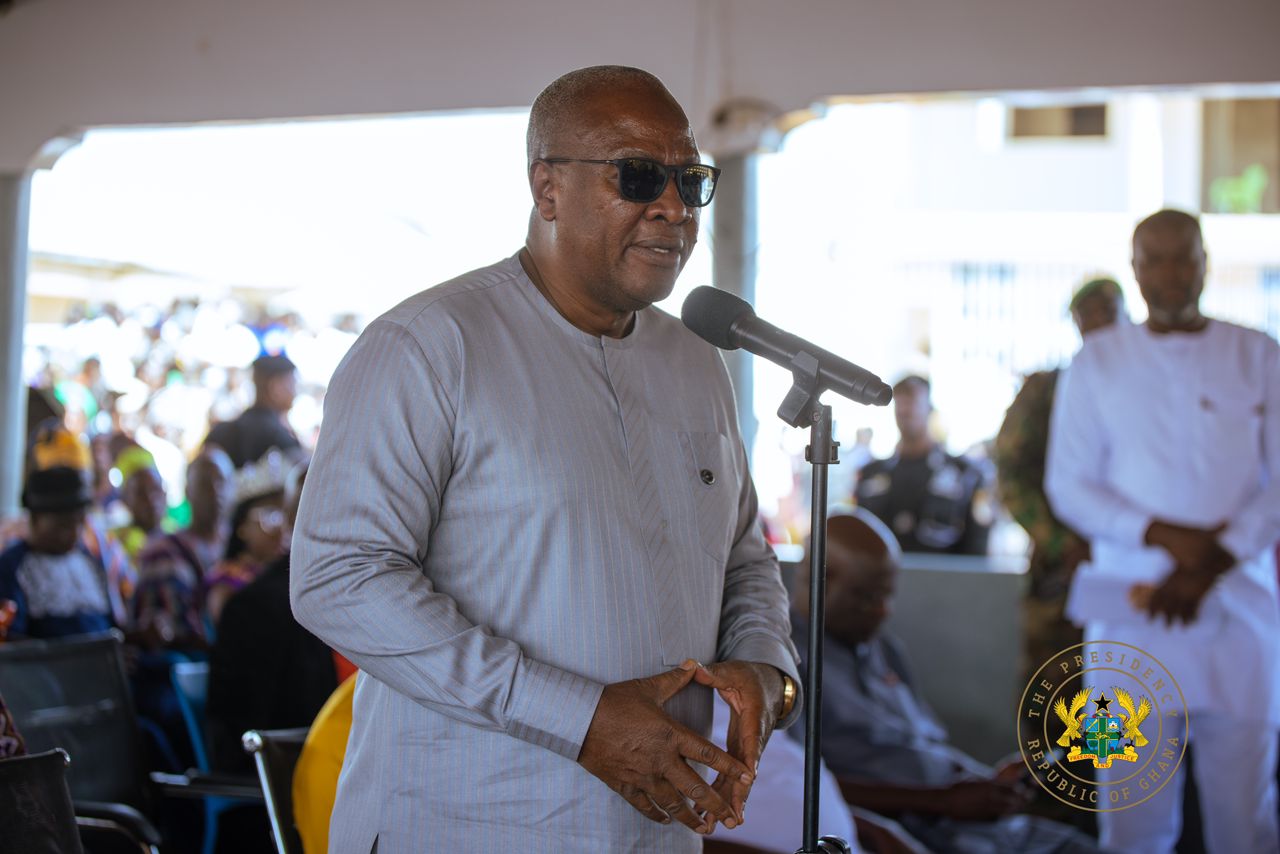
Facebook
Twitter
Pinterest
Instagram
Google+
YouTube
LinkedIn
RSS